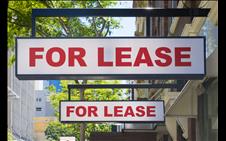|
|
Real Estate
Friday, December 13, 2019
Co-working is a popular, flexible work style for sharing a workspace and reducing overhead costs for the users. Users can choose an unassigned seat at a desk or a more formal private office setting. Co-working is on the rise in many industries but special care and concern should be noted for professions such as law that require confidentiality.
What is a user office agreement?
There are many companies that offer co-working facilities, especially in urban environments and these providers will often require the user to sign a User Office Agreement. The agreement should clearly state that it is not a landlord/tenant lease. In fact, the landlord is the owner of the building, where as the co-work provider is the tenant and the member is a co-work user.
Co-working agreements resemble a gym membership more then a lease agreement. For example, the user agreement will list certain “house rules,” which give users the day-to-day rules regarding using the space and sharing it with other users. Some of the key provisions to look for before signing a user agreement in addition to the fees to be paid are: Read more . . .
Friday, November 8, 2019
When a landlord and tenant enter into a commercial lease for a retail store or office space, the lease will likely contain a long insurance provision as well as an indemnity provision. An indemnity is a promise whereby one party promises to indemnify (or compensate) the other against some anticipated loss.
The commercial lease insurance provision will state the types of insurance the landlord must carry on the building, such as casualty insurance for damage caused by fire, hazards or terrorism and liability insurance to cover damage to property, bodily injury or death. By contrast, the tenant will be required to obtain and pay for insurance covering casualty or liability occurring within the leased premises and coverage for the certain events that occur in common areas of the leased building, especially if due to the tenant’s negligence. Read more . . .
Friday, October 25, 2019
Residential landlords will often include a provision in the lease requiring the tenant to carry renter’s insurance. Landlords do not want be sued by tenants for damage to their possessions and want tenants to look to their own coverage. Tenants often balk at an additional cost and mistakenly assume that they are covered under the landlord’s policy. This is not the case.
In fact, the landlord’s insurance will cover repairs to or replacement of the structure from things from fire, water or storm damage. Damage to or theft of the tenant’s possessions are not covered. Tenants will often believe their possessions are not worth much, when you make an inventory (TVs, computers, clothing, books, mattress, furniture) it adds up!
A common lease provision reads as follows:
“The Tenant shall be responsible for obtaining at Tenant’s own cost and
expense, a tenant’s insurance policy for the Tenant’s furniture, furnishings,
clothing and other personal property. The Tenant’s personal property shall not
be the responsibility of the Landlord, and will not be insured by the Landlord.
The Tenant’s insurance policy must also include liability coverage. Upon
request, the Tenant shall periodically furnish Landlord with evidence of
Tenant’s insurance policy.”
Some savvy Landlords will go further and add:
“Tenant shall provide a copy of renter’s insurance at the time of lease signing
and at each renewal of the lease. Tenant shall provide written notice of any
interruption of Tenant’s insurance during the Lease term.”
This additional provision prevents a tenant from letting the renter’s insurance lapse for non-payment or alerts the landlord if the insurance carrier dropped the tenant. A failure to provide the insurance could be a breach under the lease.
Tenants should consider who is listed on the insurance policy, in particularl roommates and couples, to be sure all occupants’ possessions are covered. Some renter’s policies can extend to possessions damaged or stolen while traveling. A Renter’s policy can also cover a hotel stay or other interim housing if a tenant must leave its rental because of damage.
In conclusion, renter’s insurance is not as costly as one may think and it is a good investment and protection tool for both the landlord and the tenant.
Friday, February 15, 2019
It is no secret that filing for bankruptcy can harm your credit. However, compared to simply letting your accounts go past due for months on end, bankruptcy may actually be better for your credit over the long term because there are no repeated “dings” on your credit score. Getting the bankruptcy finished allows you to start fresh and begin to rebuild your credit rating.
Your credit score is closely examined when you enter the home buying process, which means that filing for bankruptcy may affect your ability to purchase a home in the future. Even if your credit score is not significantly harmed, a bankruptcy discharge will remain on your credit report for up to ten years. That type of history can make lenders nervous about your creditworthiness. Nonetheless, it is possible to purchase a house after bankruptcy, but it may take some additional time and extra steps. Read more . . .
Friday, January 11, 2019
It is important to know the differences between a residential and commercial lease because both are treated differently under the law. The distinctions will set out certain rights and obligations for both parties involved in the contract.
What is a Residential Lease Agreement?
A residential lease is most often between a landlord and an individual tenant or family. The agreement is to provide a living arrangement. It is usually set up to include a monthly payment, but not always. The term varies from month-to-month to a term of several years, although one-year leases are perhaps the most common.
These types of leases usually apply to houses, apartments, townhouses, or condos. The location is generally not used for profit. However, some areas do permit residences to run a business out of their home.
What is a Commercial Lease?
Commercial leases involve a contract between a landlord and a business. The business can be a sole proprietorship or a corporation. The purpose of the arrangement is to provide space so that the business can sell goods or provide service. The goal for the company is to use the area to generate a profit. It is not designed for sleeping or to meet the residential needs of a business owner or its employees. Read more . . .
Thursday, December 13, 2018
Disputes with neighbors can range widely, from loud parties, to poor upkeep, to boundary encroachments. If you are like most property owners, you take great pride in your land, and you do not want anyone to use property that is rightfully yours. When neighbors start taking down shrubs, planting trees, or putting up fences on your property, that is exactly what they are doing—using your real estate. What can you do to deal with these issues?
Know Your Property Lines
Many people generally understand where their property reaches, but they may not know precisely where the property line is located. In many situations, merely pointing out where you think your property lines lie can halt encroachments in their tracks. In other circumstances, it may be a good idea to call in a professional.
You can get a formal land survey done that indicates exactly where your property ends and where your neighbor’s land begins. Having this information can be extremely valuable in dealing with any boundary issues. You may learn that you have misunderstood where your property line is located, or that your neighbor was mistaken about where your property begins.
Land surveys do cost money, but some neighbors will agree to split the costs. In other situations, it may be worth the expense to avoid litigation down the road. Read more . . .
Friday, November 9, 2018
Residential real estate sales can be overwhelming and confusing. Thankfully, the process is similar for every transaction. This means t you can prepare long before you find the right home, here’s how.
The Listing Agreement
If you are selling your home, you will start with creating a listing agreement. This agreement sets the asking s price, the commission your real estate agent will be paid, and also specifies the length of time the property will be listed, that is, remain on the market.
In a listing agreement, , you may also be required to disclose certain physical information about the property, such as the age or condition of the roof and any significant problems you have experienced. You are also required by federal law to disclose any known lead-based paint used in the home. Read more . . .
Monday, November 13, 2017

There are number of considerations for business owners involved in negotiating a commercial lease, not the least of which is the fact that the main objective of landlords is to maximize profits. By understanding the following fundamental concepts, it is possible to make a good deal.
Market Conditions
First, understanding the market conditions for commercial properties is crucial. Generally, pricing is based on square footage, but there is a difference between "usable" square feet and "rentable" square feet.
Rentable square feet is the actual measurement of the space that is being leased. However, rates are typically quoted based on usable square feet which combines the space with a percentage of common areas such as lobbies, hallways, stairways and elevators.
In addition, commercial leases are considered "triple net." This means that tenants are also required to pay for taxes, insurance, and maintenance for a unit as well as a percentage of these costs for the common areas. By understanding these market conditions and the rate other businesses are paying for similar units, it is possible to negotiate the appropriate rate.
The Term
There are a number of factors involved with the term of a lease. For some businesses, such as retail stores or medical professionals, having a stable location is essential for attracting customers and patients, respectively. With this in mind, the term should be long enough to minimize rental increases, but sufficiently flexible to avoid getting locked in. This goal can be accomplished by negotiating terms of one or two years with renewal options.
Repairs, Maintenance, and Build-outs
It is also important for a commercial lease agreement to establish which party is responsible for paying repair and maintenance costs of the space, building and grounds. In some cases the tenant pays for insurance, custodial services and security costs unless the landlord agrees to pay for a portion or all of these expenses. In addition, if new space is being leased, landlords will often agree to pay for the costs of "buildouts" to customize the space, or offer the tenant a rental abate instead.
Options and Incentives
By establishing a track record of making timely rental payments, it is often possible to renegotiate the lease to obtain more favorable terms. Although a lease may contain renewal options, it may not be necessary to exercise them automatically. At times, market conditions may change, in which case a new lease should be negotiated.
The Bottom Line
In the end, business owners face a number of challenges, and negotiating a commercial lease can have a significant impact on the company's long term success. For this reason, it is essential to engage the services of an experienced real estate attorney.
Monday, June 19, 2017
 Buying a home is the single largest investment that many individuals will make which makes it essential for potential homeowners to protect their interests. In particular, it is crucial to ensure that the seller can transfer free and clear ownership of the property by obtaining title insurance.
In short, title insurance protects both lenders and owners against claims for unknown defects in title to the property such as another individual claiming ownership of the property, unpaid taxes, judgments and liens, improperly recorded documents, encroachments and easements, as well as fraud and forgery.
In a residential real estate transaction, there are two types of policies, a lender's policy and a buyer's policy, and the homebuyer is required to pay for both. The lender's policy, or mortgagee's policy, specifically protects the lender's interest, including the loan amount and legal costs. The buyer's policy protects the owner up to the original sales price of the property, or its full market value, depending on the type of policy the buyer purchases.
In order to obtain title insurance, it is necessary to engage the services of an escrow agent, or an attorney, who will order a title search. This is a comprehensive examination of public records associated with the property such as deeds, taxes, court records - judgments, bankruptcies, wills, trusts, divorce decrees and other documents.
The title company will rely on the results of this search to issue a preliminary report, or a title commitment, which details the potential defects and outlines the conditions that must be met before a policy can be issued. This report gives the seller the opportunity to remedy any liens or other encumbrances before the loan closing, or in the alternative, from the proceeds of the sale.
In sum, title insurance protects lenders and buyers from a wide range of problems such as a fraudulent sale, unpaid taxes or other liens and defects. While the cost of a title insurance premium is typically based on the purchase price of the home, it also depends on the services the title company is offering. Lastly, the rules governing title insurance vary from state to state, so it is important to consult with an experienced real estate attorney.
Monday, April 17, 2017

Buying a home typically involves entering into an agreement with the seller and most real estate contracts contain standard terms. However, it is essential to consult with an experienced real estate attorney who can review the contract. Let's take a look at some of the key terms in a real estate contract.
Obviously, the agreement must specify the purchase price. Unless you are paying for the property in cash, it will be necessary to obtain a loan from a bank or mortgage lender. Accordingly, the contract should state that the offer is contingent upon a loan approval. If possible, the interest rate and other terms of the loan should be specified to make sure you can make the monthly payment. If the application is rejected or lender offers a higher rate, you may need to back out of the deal. In short, without this provision in the contract, you may lose your deposit.
Further, a critical aspect of buying a home is arranging for an inspection of the dwelling to ensure that it is structurally sound, the roof does not need repairs, and that the heating and electrical systems are functioning properly. If there are defects that need to be repaired, the contract should specify that the seller will agree to make and pay for them.
While homebuyers often assume that fixtures and appliances come with the home, this is not always the case. For this reason, the contract should specify whether the refrigerator, dishwasher, washer/dryer, ceiling lights and other appliances and fixtures are included.
In addition, it is important to clarify which party will pay specific closing cost such as escrow fees, title search fees, title insurance, notary fees, re-coding fees, bank fees, and the like. In some transactions, it may be possible to negotiate a seller's concession. In this arrangement, the seller agrees to pay part or all of the buyer's closing costs.
Lastly, the contract should also include a planned closing date that considers other factors such as whether the buyer is simultaneously selling an existing home, conditions of the loan commitment, and any other issues that could delay the loan closing.
In the end, if you are planning to buy a home, an experienced real estate attorney can help protect your interests and get the best deal.
Monday, January 23, 2017

Buying a home can be an exciting experience, but the process can be complicated. While some homebuyers may think hiring an attorney will be too expensive, not having proper legal representation can be even more costly. Although real estate agents typically bring buyers and sellers together, a highly skilled attorney can perform critical due diligence, anticipate problems, and be your advocate at the closing table.
It's often been said that real estate is all about the price and "location, location, location," but there are a number of factors to consider such as purchase and sales contracts, home inspections, title issues as well as arranging for financing. An experienced real estate attorney who knows the local housing market can help a buyer navigate these issues and protect his or her investment.
Read more . . .
|
|
|
|